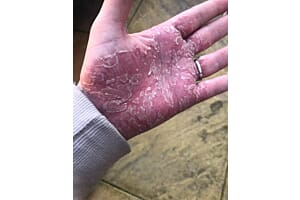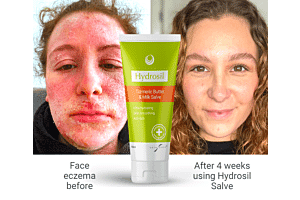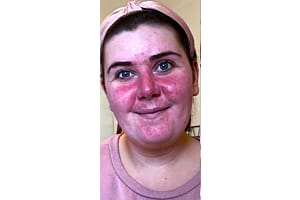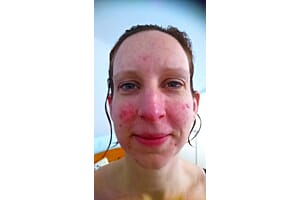At last some good news for people with psoriasis!
A new study at the University of Berlin and published in the medical journal Science has found that people with psoriasis are at less risk of getting dangerous viral infections than those suffering from eczema.
[quote]The protective factor present in psoriatic skin is due to the larger quantity of special proteins present which inhibit viral replication.[/quote]
Psoriasis is a chronic autoimmune disease that mainly affects the skin and effects roughly 2% of the population.
The human body produces new skin cells at the lowest skin level. Gradually those cells move up through the layers of skin until they reach the outermost level, where they eventually die and flake off. The whole cycle - skin cell production to skin death and flaking off - takes between 21 and 28 days.
In patients with psoriasis, the cycle takes only between 2 to 6 days; resulting in a rapid build up of cells on the skin’s surface, causing red, flaky, scaly, crusty patches covered with silvery scales, which are then shed.
Despite common misconceptions, psoriasis is non-contagious. Unlike eczema, psoriasis is more commonly found on the extensor aspect of a joint.
Psoriasis varies in severity - some patients may only have minor localized patches, while others are affected all over the body. Psoriatic nail dystrophy is common among patients with psoriasis - where the fingernails and toenails are affected. Psoriasis may also result in inflammation of the joints, a condition known as psoriatic arthritis, which affects approximately 10% to 15% of all psoriasis patients.
Although psoriasis is mostly genetic, genetic, excessive alcohol consumption, smoking and stress can exacerbate the condition and trigger flare ups.
Strangely, despite often open wounds being common in psoriatic and eczema prone skin, only skin effected by eczema has a higher incidence of cutaneous viral infections, which exacerbates the eczema and can lead to serious infection.
[quote]The new study shows that compared to the skin of patients with psoriasis, the skin of eczema patients produces smaller quantities of what are known as antiviral proteins, which inhibit viral replication.[/quote]
In the search for the trigger responsible for these differences in protein production in the two skin diseases, the research team isolated the protein interleukin-29, which is a specific protein responsible for inhibiting viral infections in skin.
The study found that interleukin-29 is present in higher concentrations in psoriatic skin, but in very low concentrations in skin affected by eczema.
The researchers showed that interleukin-29 is produced by a specific population of immune cells known as Th17 cells, which produce anti-viral defences in the skin.
The study authors concluded that sufferers of both psoriasis and eczema may benefit from new treatments that mimic the interleukin-29 protein being administered into the body to help protect vulnerable skin from viral infection, which is one of the most dangerous secondary risks of both eczema and psoriasis.







